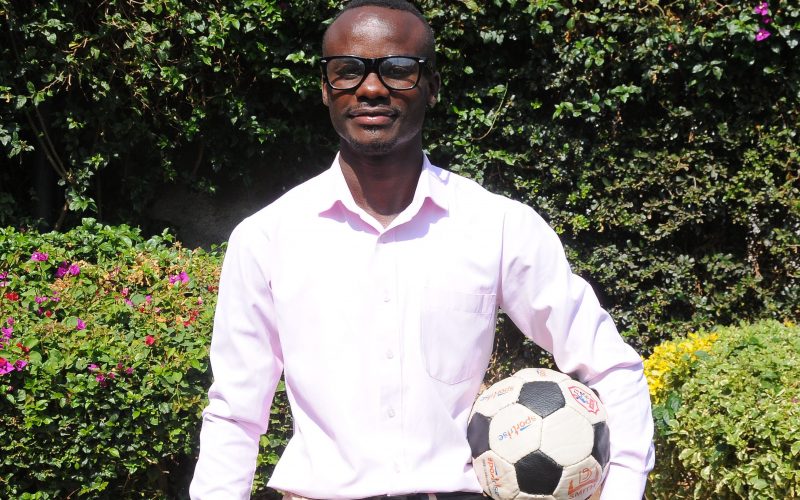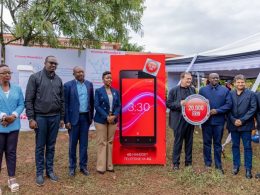Growing up, Douglas Smith was like a lot of teenagers in Uganda. He loved soccer but due to limited resources, he and his friends had to make do with balls locally crafted from banana fibers. The imported balls were expensive, and many were of a poor quality that would not withstand the wear and tear that comes from playing soccer.
Sensing a gap in the market, Douglas decided to come up with a solution that would provide locally made high-quality balls that could be used by Uganda’s soccer talent.
Born in Ibanda district, the 26-year-old additionally wanted to produce soccer balls in an environmentally sustainable manner.
“I found out that in Uganda over 2000 metric tons of waste is generated of which around 30% is plastic. After doing intensive research and studies, I came up with the idea of manufacturing soccer balls locally from recycled plastic waste,” he said in an interview.
To achieve all this, he founded a social enterprise called Sportsrise which is based in Ibanda.
Using Polyethylene Terephthalate (PETE) which is derived from the commonest plastic in Uganda the firm now makes their soccer balls from it. Through a recycling process, around 100 plastic bottles generate enough material to make one soccer ball. The company has set up plastic collection centers in Ibanda, where young people are employed to collect the plastics.
In May 2020, Sportrise made its first locally produced ball before making another one a week later. Although Smith didn’t know how important this milestone was, the responses he received on social media after making a celebratory post was overwhelming.
The company currently employs 27 people including those that collect the materials for recycling. The firm’s turnover in one year was shs12 million made from the sale of soccer balls and sportswear.
But even before starting Sportrise, Douglas had been impacting the local communities. In 2017 he formed the Douglas Smith Foundation which sought to bring positive change to the lives of young people through soccer. However, the high cost of soccer balls was making it difficult for the foundation to carry out its core goals.
“I started The Smith Foundation to help change lives of young people in my community through football. But initially, we did not have enough balls and the funds we had were not enough to buy new balls because they are expensive.” He stated. This partly encouraged him to start making his own soccer balls and commence the Sportrise journey.








